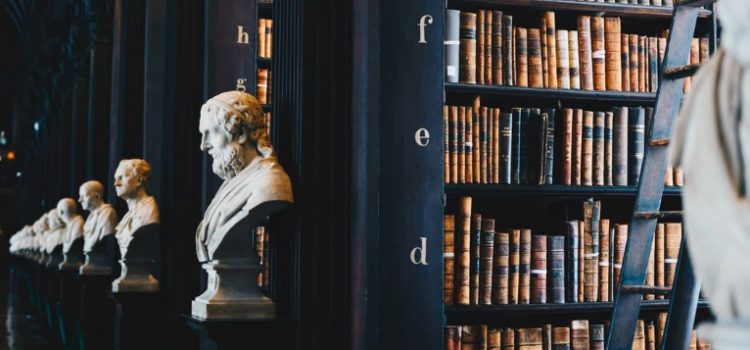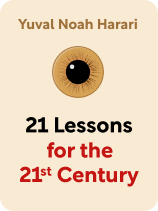

This article is an excerpt from the Shortform book guide to "21 Lessons for the 21st Century" by Yuval Noah Harari. Shortform has the world's best summaries and analyses of books you should be reading.
Like this article? Sign up for a free trial here .
Are you looking for discussion questions for 21 Lessons for the 21st Century by Yuval Noah Harari? What are some of the key themes and ideas to discuss?
From AI and unemployment to morality and the meaning of life, 21 Lessons for the 21st Century has a wealth of discussion-worthy topics to talk about. The following 21 Lessons for the 21st Century discussion questions and exercises will help you internalize the book’s lessons and consider them in the context of your own life.
Here are some 21 Lessons for the 21st Century discussion questions and exercises that tackle some of the book’s key themes.
21 Lessons for the 21st Century: Discussion Questions
In 21 Lessons for the 21st Century, Yuval Noah Harari highlights the biggest challenges in the modern world and offers advice on making sense of and navigating such transitional times. The following 21 Lessons for the 21st Century discussion questions will help you better understand the book.
Exercise 1: Could You Become a Member of the Useless Class?
Could widespread automation threaten your job?
In the time you’ve been working in your field, has any part of the industry been automated? If so, describe what it was.
Did the automation cause some people to lose their jobs? Did it create new jobs?
What aspects of your job have computers taken over or made easier?
What future aspects of your job could computers take over?
Exercise 2: How Do You Define the Terms of Immigration?
Reflect on your definitions of the terms of immigration, and how well your beliefs align with your country’s policies.
Do you believe countries have an obligation to accept immigrants? Why or why not?
Should an immigrant adopt a host country’s cultural norms even when they conflict with her own? Why or why not?
How long should an immigrant expect to wait before being absorbed into her host country’s society? Why?
How well do your beliefs about immigration line up with your country’s immigration policies and practices?
How do you think your country’s immigration policies could be improved? Why?
Exercise 3: What Guides Your Morals?
Reflect on how you distinguish right from wrong.
Is your moral compass guided by religious values, laws, or some other force?
Think of someone you know whose moral compass is guided by a different force. How does her moral behavior differ from yours?
If you didn’t have that influence in your life (for example, you weren’t a member of that religion or you lived under different laws), do you think your behavior would be significantly different? Why or why not?
Exercise 4: What’s Your Meaning of Life?
Reflect on how you search for the meaning of life. Where do you look for answers?
What made you seek an answer in that particular source?
Have you found a satisfactory answer? If so, what is it?

———End of Preview———
Like what you just read? Read the rest of the world's best book summary and analysis of Yuval Noah Harari's "21 Lessons for the 21st Century" at Shortform .
Here's what you'll find in our full 21 Lessons for the 21st Century summary :
- What the unique challenges of the 21st century are and will be
- Why religion can't solve these 21st-century challenges
- How algorithms like Netflix recommendations are teaching you not to trust yourself






